Top Ten Tuesday is a weekly feature/meme now hosted by That Artsy Reader Girl. The meme was originally the brainchild of The Broke and the Bookish. This week’s topic is Petty Reasons You’ve DNF’d a Book.
So first of all, my apologies for being late with this post!
Yesterday’s prompt was “Petty Reasons You’ve DNF’d a Book.” I decided to leave out “petty,” because honestly, when I DNF a book, it’s usually because there’s something that genuinely bothers me about it, whether it’s the plot, the characters, the writing style, the language choices, or even the design. (Yes, if your font is so small I am squinting, I will not be able to read the book.) Some of the reasons below might come across as petty, but to me, they are all legitimate reasons to stop reading a book.
By the way, if I put a book aside temporarily, but I’m willing to come back to it at a future date, I don’t consider that DNF’ing the book. It’s more like putting it into hibernation. When I truly DNF a book, I mean I am never going to finish it.
Reasons I Have DNF’d a Book
1. I found the book offensive. (Or the author’s beliefs and attitudes, as expressed through the book.) I’ll DNF a book for racism, mysogyny, or other types of bigotry.
2. The book was poorly researched; it got historical or scientific facts wrong or denied them altogether. Yes, I know that scientific knowledge evolves (plate tectonics was once widely ridiculed in the scientific community, until evidence in favor of the theory began to pile up.) And history is subject to interpretation. But if a book argues that the Holocaust never occurred, or gets the dates of major events or historical figures wrong, or has characters using the telephone 10 years before its introduction, that’s the sort of thing that will make me throw the book across the room in frustration. Metaphorically, at least.
3. The characters were poorly researched. In other words, the author used stereotypes or shallow understanding to portray characters whose experiences are far different from the author’s own. (For example, portraying a character of a particular faith without understanding how their faith would be reflected in their thoughts and actions, or portraying an indigenous, POC, LGBTQIA+, or disabled character based on stereotypes rather than real people’s experiences.) It takes effort to get this stuff right, and research (either reading, or interviewing people), but it’s so important.
4. Female characters were terribly written, and/or existed only as plot devices. This is technically a subset of the previous reason, but it’s so common that I feel it deserves being called out on its own. (The worst offenders are usually male authors, but the female-character-as-plot-device is key to so many tropes that I’ve seen it from female authors as well. That’s not to say that all male authors write female characters poorly; some write wonderful female characters, full of agency and interest.)
5. Abuse of children or animals. If the abuse is mentioned, but it took place in the character’s past (something they experienced or witnessed), that’s one thing. If I have to “watch” it happening on-page, I find that very uncomfortable; if it goes on too long or is too graphic, I may DNF the book. That goes at least triple if the abuser is a family member, or if I’m “watching” it from the perspective of the abuser/villain; in either case, I’m extremely likely to DNF. There are a few books I have made it through because of the sensitive way in which the author handled it, but there are a number of books I have DNF’d because I just couldn’t deal with this topic. (And no, it’s got nothing to do with personal experience.)
6. Consent issues. If there is dubious or nonexistent consent between the main characters, and the author seems to think it’s fine, that’s a no for me.
7. Too much violence, or violence was too graphic. Especially if it seems gratuitous. Or if I have to “watch” it through the perpetrator’s POV. Obviously, “too much” is subjective, and it can change depending on my mood and my anxiety levels, so sometimes this just triggers a hibernation. But there are books that would surpass my tolerance even on my better days; those I DNF.
8. Sexual content made me uncomfortable. I’m not judging anyone else, but there are things I am personally just not comfortable with (for instance, BDSM.) Usually I can tell from the blurb, so I just don’t read the book in the first place. Sometimes it comes as a surprise, and I have DNF’d a few books for that reason.
9. I looked at the ending, and I didn’t like it. OK, that does sound petty, but why should I spend my time on a book when the ending is going to make me sad, angry, or unsatisfied? (And please don’t scold me for checking the end of a book before I have finished it. It’s one way I manage my anxiety when reading. Sometimes, knowing what is ahead helps me finish the book. Sometimes, I’m willing to put up with a sad ending if I know it’s coming, but I would feel betrayed if I was expecting a positive outcome and didn’t get one. And sometimes, checking the ending keeps me from spending time on a book I wouldn’t actually like in the long run. I don’t do it with every book, and especially not with most mysteries, but it does help.)
10. The book was poorly edited and/or copyedited. I can forgive a few proofreading mistakes. But if the book was riddled with typos, spelling or grammatical errors, continuity or consistency errors, or needs significant developmental editing (for plot holes, flow, pacing, etc.), then I probably DNF’d it.
11. I literally couldn’t read it. Or couldn’t read it comfortably. Usually that’s because the font is too small, or too faint (OMG, publishers, stop with the grey type already!), or because the print in my copy is blurry or pages are missing. Or, for an ebook, because there are formatting errors. (In one case, the book literally froze my e-reader every time I got to a certain page.) If I liked the book enough, I might make an effort to find a readable copy.
And now for a few of the pettier reasons:
12. I wasn’t in the mood for that much angst. My tolerance for angst (especially teen angst) is a lot lower than it was when I was in my teens. Or even my 20s and 30s. Emotional turmoil that’s reasonable for the situation is fine. Angst and drama written for the sake of angst and drama, not so much. (See also #15 and #17.)
13. The book was boring. (I assume you need no further explanation.)
14. I hated the narrator’s voice, accent, or delivery. (No further explanation needed for this one, either.)
15. There was an unnecessary love triangle, or a love triangle introduced solely to provide conflict. This trope is way over-used in YA fiction, and it drives me nuts. The only time I will tolerate it is when it’s well-written and serves more of a purpose than simply to provide angst or conflict. It also needs to flow organically from who the three characters are.
16. The main character(s) made life choices I really disagreed with, and stuck to them. In other words, they didn’t learn any better over the course of the book. For example, I DNF’d a book when I realized the main female character intended to keep a major secret about who she was (a witch) from her love interest… forever. (And she didn’t change her mind at the end of the book; I peeked.) That kind of withholding is antithetical to an authentic, honest relationship in my book.
17. The major conflict in the romance could be avoided/solved by just talking to each other like sensible adults. I can’t tell you how much this annoys me, and it’s everywhere. If a book’s characters have a misunderstanding or conflict and they could solve it with a simple conversation, they better have really, really believable reasons for not having that conversation.
18. The main characters were going to end up together despite clear red flags (control issues, lack of trust, insufficient evidence of character redemption, etc.), yet I’m supposed to accept that as a HEA. This is similar to the “poor life choices” one. I might accept it if the character who exhibited the red-flag behavior makes significant and believable changes and a sincere and adequate apology, and there is sufficient evidence that their change of heart will stick. In other words, I want proof they have really reformed, or I’m out.

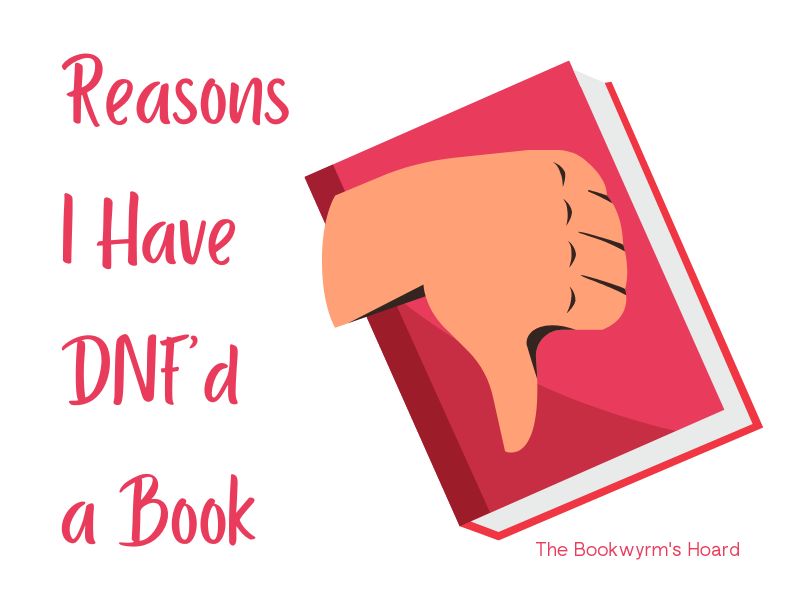


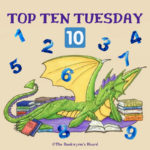
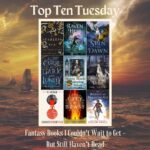
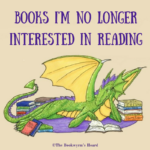







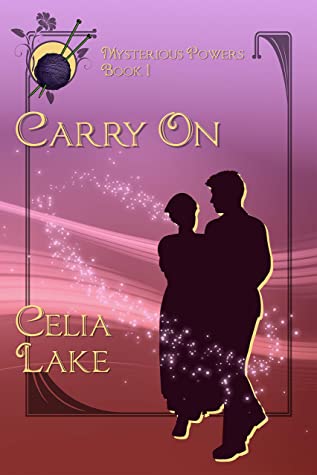


























Anne - Books of My Heart
Yes!
Anne – Books of My Heart recently posted…🎧 Disturbing the Dead by Kelley Armstrong @KelleyArmstrong @katehandford @MinotaurBooks @MacmillanAudio #LoveAudiobooks
Lydia
I totally agree with all of these! They’re great reasons to DNF.
Here is my Top Ten Tuesday.
Lydia recently posted…A Review of Giving Up the Ghost